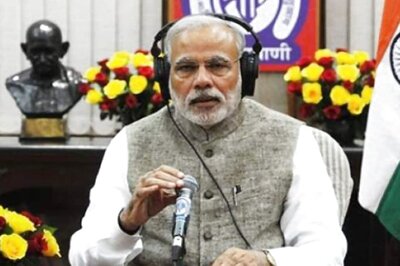
views
HYDERABAD: World Cancer Day might have passed by with much fanfare and awareness sessions conducted all around. But among all cancers identified by medicos so far, male breast cancer is the least discussed and least informed. A major reason why patients diagnosed with the same undergo treatment only after they reach Stage 3 or 4 of the disease, which makes recovery difficult. “90% of all male breast cancer cases are hormone dependent, whereas only 60% of women are affected by hormone changes,” said Dr Vijay Anand P Reddy, Director, Apollo Cancer Hospitals. He explained how the increase in estrogen hormone levels in men above 40-45 causes the formation of nodules or small masses or tissues in the breast, which most of the times are ignored by the person mainly due to lack of awareness. “This leads to delay in diagnosis and treatment”, he added.Currently, the number of male breast cancer cases recorded is only 0.7% of the total breast cancer cases diagnosed in India, and according to Dr TS Rao of the Indo- American Cancer Hospital and Research Institute, “The ratio of male cases to female is 100:1 ie. for every 100 female breast cancer cases, the number of men affected is just 1. The number may not yet be big to cause panic, but it sure is significant.”His hospital has diagnosed and treated atleast 10 cases in the past couple of years, and he adds, “The number has increased from what it was a few years earlier. But though the prevalence has increased, the incidence or ratio remains same, since population has also increased simultaneously.” Dr Reddy on his part mentioned that just 4-5 cases have been treated at Apollo in the past one year, but cautioned against complacency and instead, stressed the need for more awareness on the same to ensure the number doesn’t increase further. “Alcohol consumption is also a possible reason for male breast cancer. But since not much research has been conducted on the same, its difficult to pinpoint other factors apart from hormonal changes”, said Dr Reddy.Currently, the absence of a cancer registry in the state is a major handicap for research institutes to study the disease.



















Comments
0 comment